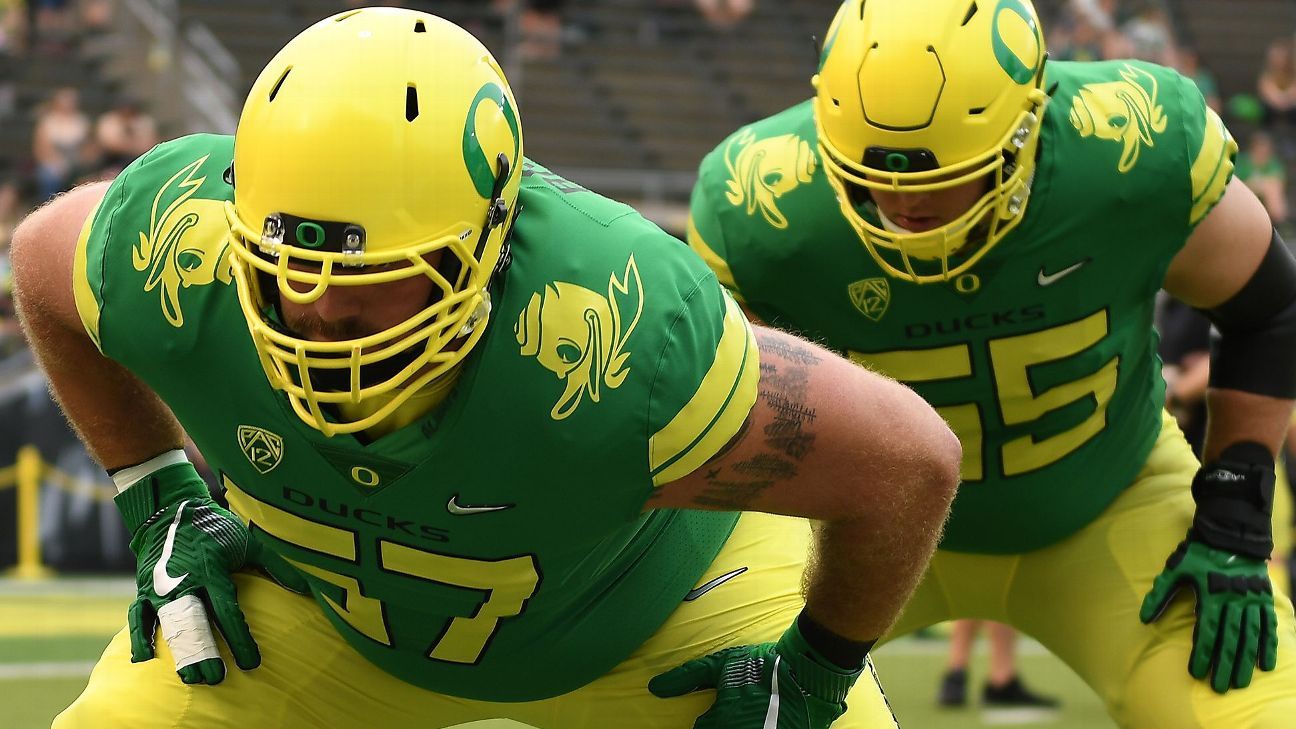Former Oregon offensive lineman Doug Brenner lost his lawsuit against the NCAA on Friday, as a jury found the NCAA negligent, but did not award Brenner any of the $100 million he was seeking in punitive damages for injuries he sustained during a controversial workout in 2017.
Brenner’s attorneys argued that his injuries occurred because the NCAA doesn’t have a specific rule or bylaw regarding overexerting players during workouts, but the jury didn’t believe the NCAA’s negligence contributed to them.
Jason Kafoury, one of Brenner’s attorneys, said they will appeal.
“We hope this case is a shot across the bow to the NCAA, and that it will further the effort to protect student-athletes from preventable injuries and deaths,” Kafoury said. “To have a case of this magnitude decided on such a technicality is a tragedy.”
“If the NCAA doesn’t change rules,” he said, “they’re looking at a lot of future lawsuits because we’ve shown in the case that they were on notice and that if they don’t act now, then they really are reckless.”
A spokesperson for the NCAA did not immediately return a request for comment.
The NCAA has argued that it doesn’t have the authority to pass health and safety bylaws — the member schools and conferences are responsible for players’ health and safety.
“Plaintiffs appear to contend that the dozens of guidelines and best practices found in the 140-page Sports Medicine Handbook relating to the conduct of workouts should be subject to monitoring, investigation, and enforcement,” the NCAA wrote in its opposition. “This is unworkable.”
The University of Oregon reached a $500,000 settlement with Brenner over damages related to his hospitalization, a school spokesperson told ESPN on Friday.
As part of the settlement with Oregon, Brenner dismissed claims against former Oregon coach Willie Taggart, now the head coach at Florida Atlantic, and his former strength coach, Irele Oderinde. A source at South Florida, where Oderinde most recently worked, told ESPN on Friday evening that Oderinde is no longer employed as the strength coach for the women’s basketball team, but was dismissed for reasons unrelated to what happened at Oregon.
Still, Brenner referenced Oderinde losing his job in a statement he provided to Oregon.
“The events surrounding this lawsuit happened years ago,” Brenner said in the statement that was shared with ESPN. “As competitors we all know that, in the heat of battle, things are said and done during competition, whether on the practice field, the game field, or in a lawsuit. I am sorry to learn of Coach O’s termination now for things that happened years ago. After hearing Coach T and Coach O’s testimony, I now understand that the workouts that lead us here were intended as team building exercises and that they got out of hand.”
The law firm of Kafoury & McDougal first filed the suit on behalf of Brenner in January 2019 in circuit court in the state of Oregon. Brenner was seeking $20 million in non-economic damages and $5.5 million in economic damages in his claims against Oregon, Taggart and Oderinde. The trial began April 12.
Oderinde, who later was hired by Taggart at Florida State for the same position, was suspended by Oregon in 2017 for a month without pay after tight end Cam McCormick and offensive lineman Sam Poutasi were hospitalized with Brenner and suffered from rhabdomyolysis as a result of workouts conducted shortly after Taggart was hired at Oregon.
According to the lawsuit, the workout lasted for 60 to 90 minutes, and the staff “did not make water available in the workout room for at least the first day of the workouts.” The lawsuit also states that about 40 players in each group had to do “10 perfect push-ups in unison,” and if one of the athletes was out of synch with the rest or failed to use perfect technique, all of the players had to do up-downs and start the drill over.
Brenner, McCormick and Poutasi rejoined the team following their hospitalizations, but the incident prompted Oregon to change its reporting system, with the strength and conditioning coach answering to the Ducks’ director of performance and sports science instead of the head coach.
“I’m extremely sorry for the incident that transpired, but I’m happy that a lot of ‘truths’ came out during the proceedings,” Taggart said on Thursday in a statement to ESPN. “Now, my total focus is getting back to our FAU Football Family, and our Student-Athletes.”
According to the Oregonian, the university, Taggart and Oderinde contended during the trial that the workouts were excessive, but not intended to be punitive. Oderinde apologized during his testimony last week, according to the Oregonian.
“You never want kids to be injured in any ways, especially from a workout or even at practice,” Oderinde said on Thursday, according to the Oregonian. “But at the same time, you want to push kids and you want to push them safely. I feel like with today’s outcome, I believe Doug understands our intent was never for that, it was to build young men and to build a team.”
